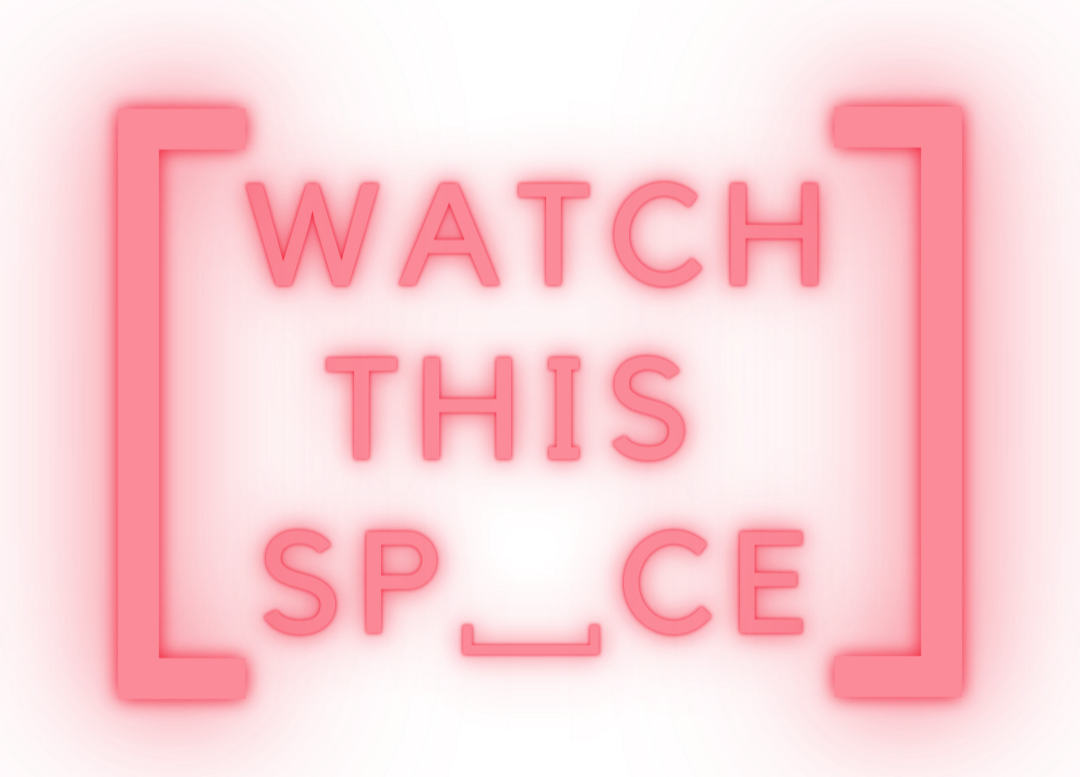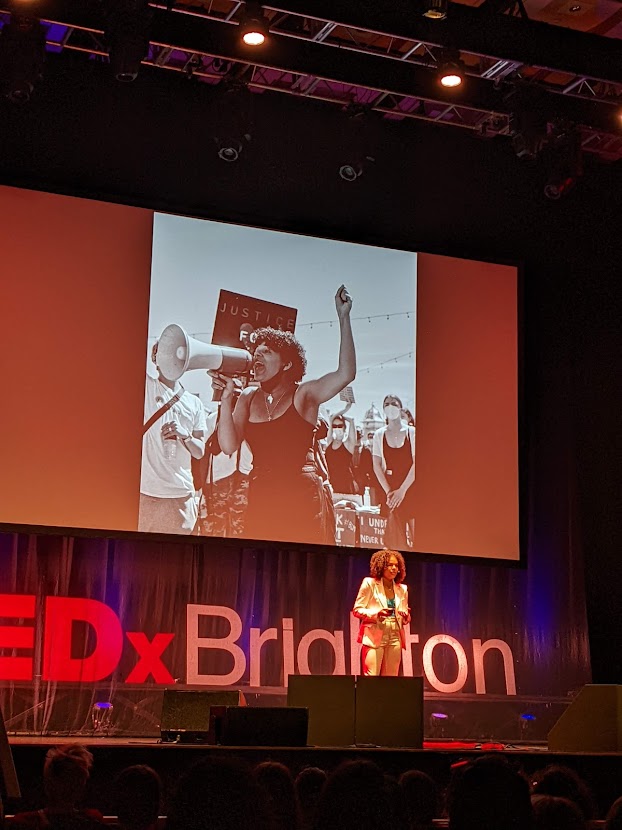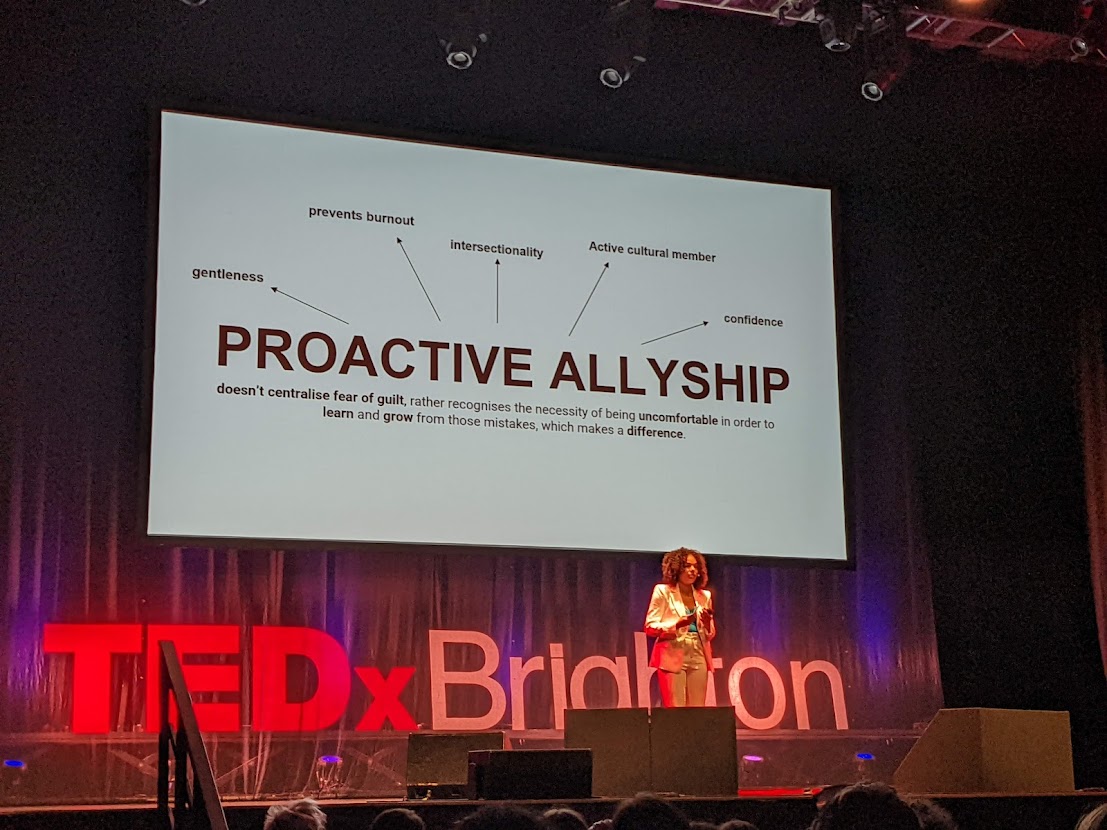Do we know what the future holds and what it is? Who is making the decisions on that future and telling people what is happening? An inspirational day at TedX Brighton showed us that we need to radically change who tells stories, who makes decisions, and who can create the future we want to drive the changes we want to see. We need radical and revolutionary change, but perhaps not the type of revolution that naturally springs to mind. This is not about armies, shouting and riots. This is about thinking very differently, with new ideas and with different voices and communities involved.
Whose story is it anyway?
When you think of revolution, what images spring to your mind? Are those images really a revolution, or your version of it or perhaps someone else’s? When we think about the narratives and stories we are told, who is telling them? We have to consider who gets to tell stories and what is being missed by those stories being told from only certain perspectives.
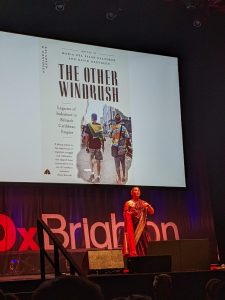
Dr María del Pilar Kaladeen spoke about ‘The Other Windrush’, the stories about the people we don’t hear about. People from India who were indentured. They are part of the legacy of Windrush. These people don’t feature in the stories we hear about the Windrush generation though. We are told a version of events, and there are many stories we are not told. They are missed out of the narrative.
We can look at most things we are told and see the same things. That we are told one version of events and then decisions and the future are shaped by those versions. When actually we need to look beyond that and hear all the stories.
Dr María del Pilar Kaladeen
This theme of who tells stories and shapes narratives was there throughout the day. Kaia Allen-Bevan talked about revolution not being a one time event. Are you really playing your part in a revolution if you post black squares on Instagram and went to a march in 2020? Has anything really changed, when now only 100 people turn up to a march and those black squares are long lost on people’s Instagram profiles? We need everyone to stand up and be proactive in their allyship. What are we all going to do about making racial justice part of our future?
That was also the theme of Katie Vincent from Allsorts Youth’s powerful, emotional talk about the need for people to stand up and speak up. Brighton & Hove might seem like a wonderfully inclusive place, but there are powerful undercurrents and we need to challenge people. Stand up and speak out. “Our voices are being drowned out by a tiny minority of people who who a big platform and a loud voice. We need you to be an LGBT+ ally. “
Speaking out about your story and your truth is also what Lewis Wedlock talked about. He talked about the toxic template of masculinity. The fact that there is a toxic theme around masculinity and how we all need to change that. We need to look to our communities and challenge the stereotypes.
Do we need to make it less about the individual?
Which brings us onto the strong theme about individuals vs the collective. In Western traditions stories have to centre around one person. Dina Nayeri talked to us about how that isn’t the case with Eastern storytelling, it’s about the collective. Western storytelling makes the individual the hero and the focus. Eastern storytelling isn’t about one person, you’re just a small part of the universe. People make up the whole of a story together instead of it being centered around one person. We’re all part of the universe.
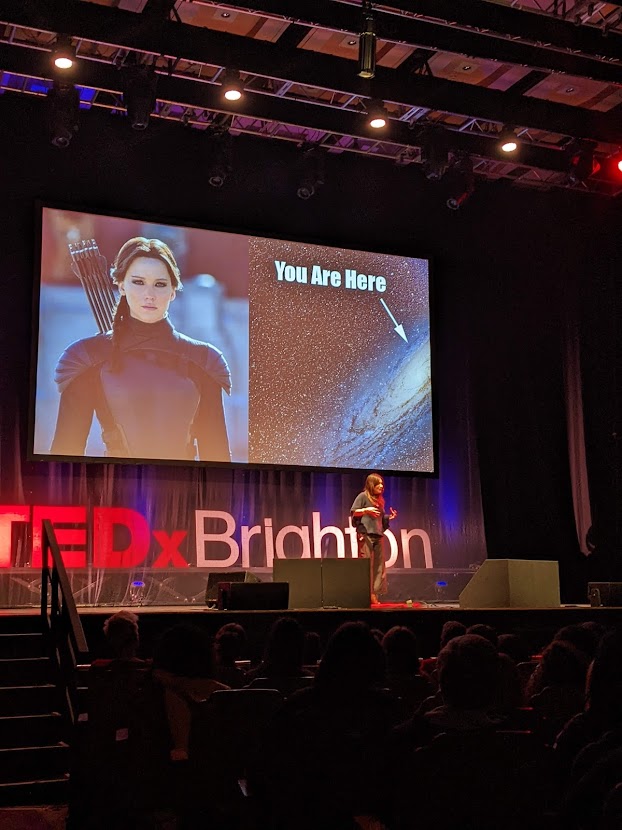
And for a future where it’s not about individuals and top down change, with the same types of people telling everyone what to do, what needs to change? For a future where work is about doing what you love and being happy, and where we embrace difference, we all need to be part of driving those changes. We can make the world better for everyone. Driving inclusion is not about excluding anyone. It’s making the world more inclusive, which helps everyone. For example, if we make clothing better for people with disabilities, then that helps everyone else too. And remember that the purple pound (spending power of the disabled community) is worth £249 billion in the UK alone!
These changes we need to drive are everywhere. and not confined to earth. Two speakers inspired us talking about space. Melissa Thorpe talked to us about exploring ‘good space’ and her work in exploration. Why is space exploration ever ‘bad space’? Why are only some people permitted to do that exploration? Bianca Cefalo made us sit up and listen!
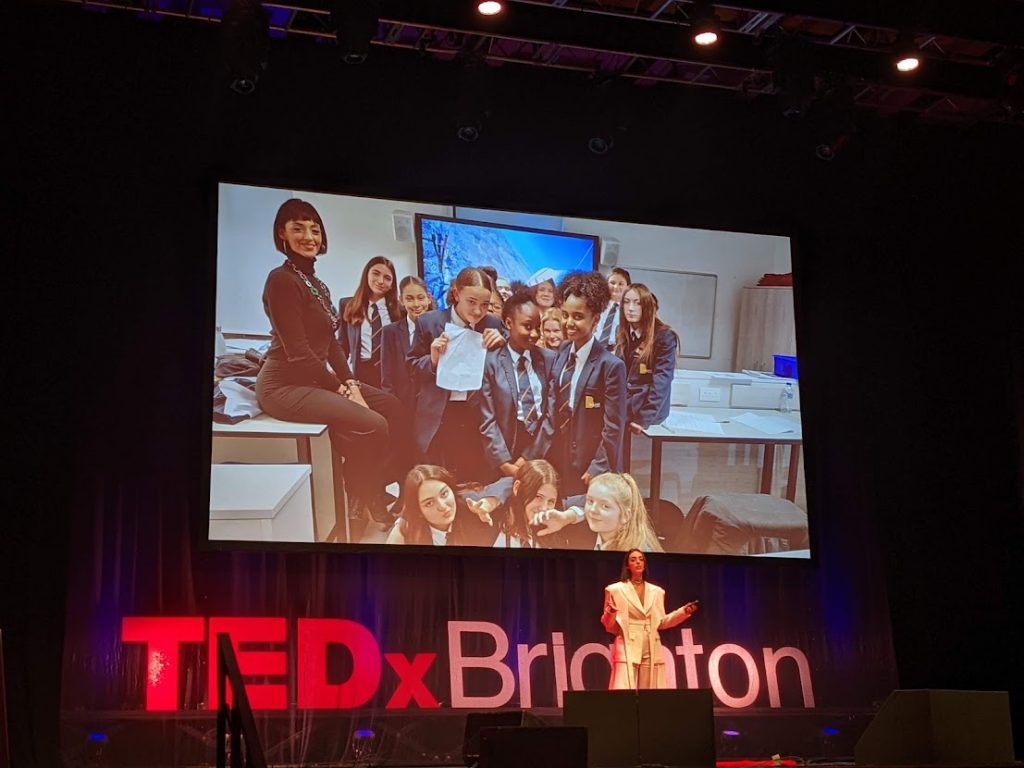
Bianca’s work in the space industry means she has to challenge stereotypes and narratives all the time. She said “We can clearly see stars light years away, but our view of humanity is still tainted by outdated stereotypes of gender.” She talks to girls in schools to get them interested in careers in space. Those girls told her that usually people who come to talk to them about these subjects look like their grandfather’s! Let’s not continue to live in a world where a women had to give up her place on a space walk because the suit was too big.
If we’re going to decentralise our digital future. If we’re going to drive societal change, we need to deconstruct the system we are all part of. Right now 1 in 5 people feel they don’t belong at work, 52% of us experienced burnout during the pandemic, life expectancy is actually going down, while plastic is the silent killer of our generation. There’s a lot to change about this world.
A changed future?
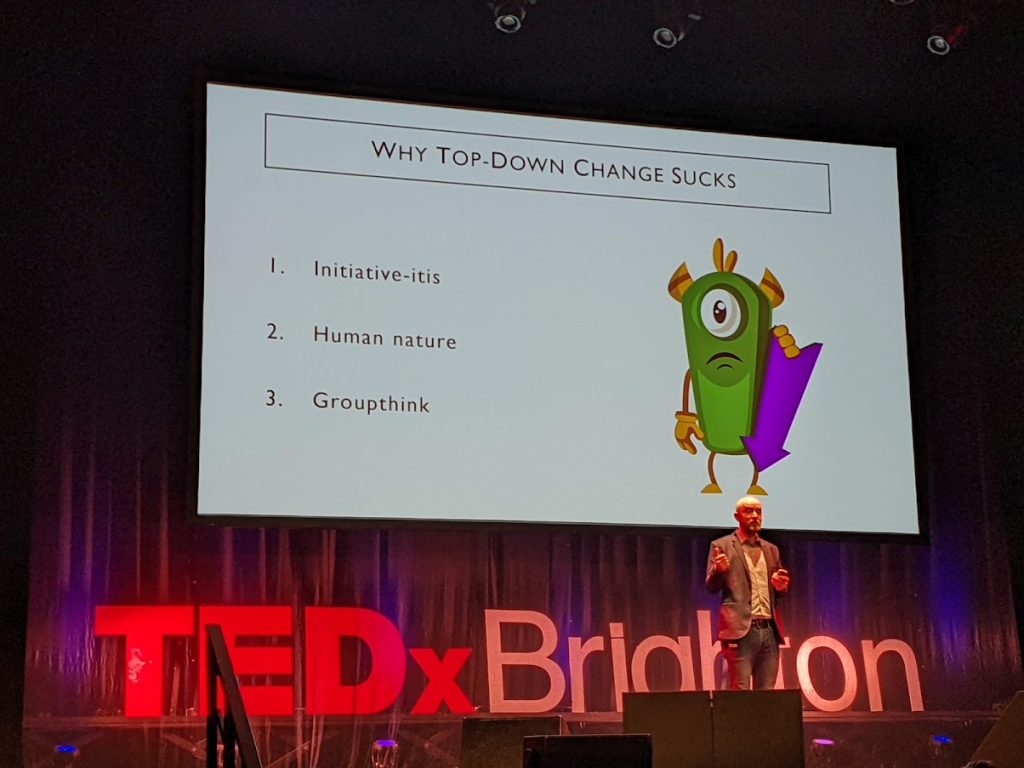
So how do we change that future? That’s the question and why my head was spinning after listening to all the speakers. To create a future where people love what they do, and feel happy at work and driven to drive a revolution, we need to hear from so many more different people. As Kaia Allen-Bevan quoted Audre Lorde in saying “Revolution is not a one-time event” that brings us to some of the more tactical revolutions we need. Dr James Mannion talked about ‘Why Top Down Change Sucks’. We can’t get to that changed future by doing things the same way. We need to re-imagine it (to quote us!). There is work to do to change our society to be equal, kinder, fairer and revolutionary
I end with 3 quotes that stayed with me as I reflect on the day:
Happiness is like a heartbeat – it’s meant to go up and down. You can’t tell people to be happy. But you can create the right environment and allow the natural ups and downs so that that becomes regular and natural.
– Matt Phelan
Do what you love. The rest will be replaced by robots, but loving your work is what the robots can’t do.
– Dan Sodergren
Societal change is being the best person you can be, whilst simultaneously trying to deconstruct the system we are all part of.
– Kaia Allen-Bevan
If this has got your brain frying too, we would love to hear what you think. Let us know on our social media channels @watchthisspce or email hello@watchthisspace.uk
